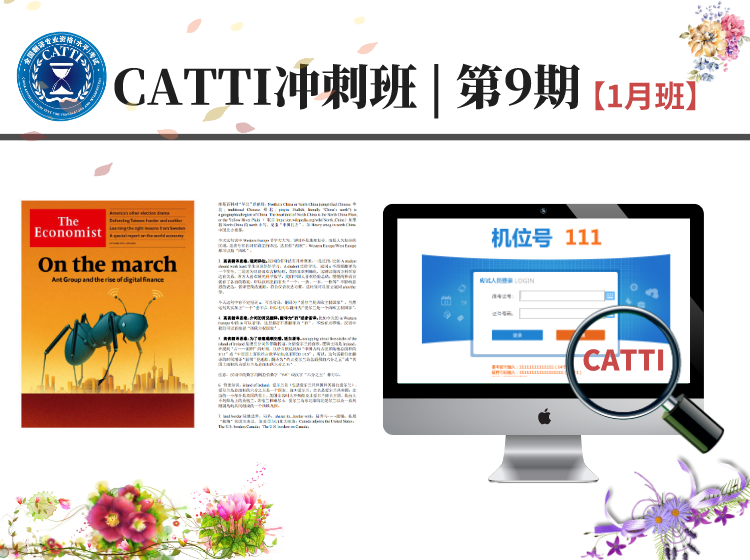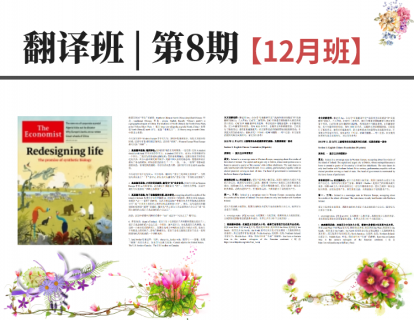戴秉国在中美智库南海问题对话会上的讲话
Speech by Dai Bingguo at China-US Dialogue on South China Sea Between Chinese and US Think Tanks
2016年7月5日,华盛顿
5 July, Washington D.C
女士们,先生们,朋友们:
Ladies and Gentlemen,
Friends,
很高兴出席由中国人民大学重阳金融研究院和美国卡内基国际和平基金会共同主办的中美智库南海问题对话会,与各位新老朋友见面。借此机会,我要感谢两大机构组织这次对话会,并对长期关心支持中美关系发展的在座各位表示衷心感谢!微博@高斋翻硕 公众号:高斋翻译学堂
I am delighted to attend the China-US dialogue on South China Sea between Chinese and US think tanks jointly organized by the Carnegie Endowment for International Peace and Chongyang Institute for Financial Studies at Renmin University and meet with old and new friends. I would like to take this opportunity to thank both organizations for putting this dialogue together and my sincere thanks go to all of you here who have for long cared for and supported the development of China-US relations.
我退休后当了北京大学国际战略研究院的名誉院长,一定意义上也是一名智库学者了。我很愿意与大家坦诚深入沟通,相互启发。
I became honorary president of the Institute of International and Strategic Studies at Peking University after retiring from government. In this sense, I can also be counted as a think tank scholar. I very much look forward to having candid and in-depth exchanges with all of you for mutual enlightenment.
40多年前,中美交往的大门打开之后,中美关系迎风冒雨势如破竹地一路向前发展,取得了巨大而非凡的成果,极大地造福于中美两国人民,也惠及了全世界。中美这样两个大国在短短40多年间彼此关系获得的巨大发展堪称大国关系史上的奇迹。微博@高斋翻硕 公众号:高斋翻译学堂
Since the door of communication between China and the US opened more than 40 years ago, China-US relations have come a long way despite twists and turns and produced tremendous and extraordinary outcomes. This has not only benefited the people of China and the US, but also the whole world. Fast growth of relations between these two major countries in a short span of 40 years can be described as nothing short of a miracle in the history of major-country relations.
差不多3年前,2013年6月,习近平主席与奥巴马总统在美丽的阳光之乡安纳伯格庄园成功会晤。3年多来,中美双方又围绕不冲突不对抗、相互尊重、合作共赢这一战略共识,推动中美新型大国关系建设不断取得重要进展。两国在双边广泛领域和攸关人类前途命运的重大问题上携手合作。两国贸易额和双向投资都达到历史新高,双方不断加强宏观经济协调,有效推动世界经济复苏与发展。双方先后签署了3份气候变化联合声明,为达成气候变化《巴黎协定》发挥了关键引领作用。双方在两军、执法、能源、人文等领域务实合作继续拓展,在伊核、朝核、叙利亚、阿富汗、维和、发展、全球公共卫生等国际地区热点问题和重大全球性问题上开展密切协调与合作。这些合作造福两国,增强了国际社会对中美关系发展的正面预期。
Three years ago, in June 2013, President Xi Jinping and President Obama held a successful meeting in Annenberg, Sunnylands. Since then, guided by the strategic consensus of no conflict, no confrontation, mutual respect and win-win cooperation, the two countries have continued to make important progress in the building of a new model of major country relations. China and the US have joined hands in promoting progress in a wide range of fields in bilateral relations and addressing major issues bearing on mankind’s future and destiny. Their trade volume and two-way investment have both scaled new heights. The two countries have stepped up macro-economic coordination which effectively facilitated world economic recovery and growth. China and the US have signed 3 joint statements on climate change, playing a crucial leading role for reaching the Paris Agreement on climate change. The two sides continued to broaden practical cooperation in military-to-military, law-enforcement, energy, and cultural and people-to-people exchanges. They have conducted close coordination and cooperation on international and regional hotspot issues and major global issues such as Iranian nuclear issue, Korean nuclear issue, Syria, Afghanistan, peacekeeping, international development and global public health. Such cooperation has benefited both countries, and bolstered international confidence in the continued growth of China-US relations.
毋庸讳言,作为历史文化、社会制度、价值理念迥异和发展水平不同的两个大国,彼此关系在发展过程中也会出现这样那样的分歧和问题。这十分正常,关键是要增进坦诚深入的战略性沟通,以建设性的态度处理和管控好有关分歧,甚至超越分歧,聚焦合作,发展合作。南海问题就是这样一个问题。微博@高斋翻硕 公众号:高斋翻译学
China and the US are two major countries with very different histories, cultures, social systems and values and at different levels of development. As such, it is only natural that they would encounter differences and challenges in their relations. What’s important is to increase strategic communication in a candid way and handle and manage differences in a constructive manner. Furthermore, we should endeavor to transcend differences by focusing on and expanding cooperation. The South China Sea could well have been an example of this approach.
近一段时间来,本来一向比较平静的南海变得不平静了,南海热起来了,甚至到了很不寻常的地步。引起国际社会广泛关注。真相究竟如何?我注意到,大多数关于南海问题的报道和评论仅从特定角度截取一个静态片段。未能展示南海问题的全貌。我想,研究一个国际热点问题,需要实事求是,充分考虑有关国际背景、厘清来龙去脉,并关注有关当事方往来互动,这样才能看到全貌,弄清是非,得出正确结论。本着这一方法,我想重点谈一下南海问题的历史经纬、中国的南海政策,并且探讨如何从中美关系的视角看待和把握南海问题,以利南海的温度真正降下来,恢复它往日的平静。
For a period of time, the South China Sea which used to be a rather quiet place has become not so quiet. The situation there has heated up to a quite unusual degree, drawing extensive international attention. What has really happened there? I noticed that reports and comments on this issue tend to take a static view from a certain angle, and thus have not shown the full picture of the South China Sea issue. In my view, to study an international hotspot issue, it is necessary to seek truth from facts by fully considering the relevant international background, tracing the historical development, and thoroughly reviewing how the concerned parties have interacted on this issue. Only in this way can one see the whole picture, tell right from wrong and draw the right conclusion. In this vein, I would like to focus my speech on the historical facts of the South China Sea issue and China’s policy on this issue. And I will endeavor to view and handle the South China Sea issue from the perspective of China-US relations and explore ways to genuinely cool down this issue and restore calm to this part of the world.
一、南沙群岛是中国固有领土
1. Nansha Islands are China’s integral territory.
中国和许多西方国家史料都可以佐证,中国人民最早发现、命名和开发经营南海诸岛,中国政府最早并持续和平、有效地对南海诸岛行使主权管辖。二战期间,日本曾非法侵占中国南海诸岛。战后,中国予以收复。二战后期的《开罗宣言》、《波茨坦公告》等确立战后国际秩序的文件,要求日本将窃取的中国领土归还中国。战后,中国收复被日本侵占的台湾和澎湖列岛、西沙群岛和南沙群岛。各位知道吗?中国有关行动当时得到了美国麦克阿瑟将军的支持。中国军政人员正是乘坐美国提供的军舰分赴西沙和南沙群岛举行接收仪式的。其后,美国又多次就在南沙部分岛礁进行大地测量事向中国台湾当局提出申请。
Historical materials of China and many western countries corroborate the fact that it was the Chinese people who were the first to discover, name, develop and administer the islands in South China Sea, and that the Chinese government was the first to peacefully and effectively exercise continuous sovereign jurisdiction on South China Sea islands. During the Second World War, Japan illegally invaded and occupied China’s South China Sea islands, which were restored to China after the war. Pursuant to Cairo Declaration and the Potsdam Proclamation, which were cornerstones of the post-war international order, Japan shall return the stolen Chinese territory to China. Following the end of the war, China restored Taiwan, Penghu Islands, Xisha Islands and Nansha Islands illegally occupied by Japan.
Many of you were probably not aware of this, but China’s actions to restore the islands was supported by General Douglas McArthur. China’s military and government personnel were ferried by US-provided military vessels to Xisha and Nansha Islands to hold the restoration ceremony. After that, the US filed applications to Chinese authorities on Taiwan to conduct geodetic survey in some of Nansha Islands on many occasions.
事实说明,南沙群岛回归中国,是战后国际秩序和相关领土安排的一部分。战后相当长时间内,美方一直承认并实际上尊重中国对南沙群岛的主权。中国对南海诸岛的主权作为战后国际秩序的一部分,还受《联合国宪章》等国际法保护。坦率地讲,美方现在说在有关领土问题上不持立场实际上是一种倒退,是对自己曾经参与构建的战后国际秩序的否定。微博@高斋翻硕 公众号:高斋翻译学堂
All this shows that the return of Nansha Islands to China is part of the post-war international order and relevant territorial arrangements. For a long time since the end of the War, the US has recognized and in reality respected China’s sovereignty over Nansha Islands. China’s sovereignty over South China Sea islands, as part of the post-war international order, is under protection by the UN Charter and other international law. To be blunt, when the US states today that it does not take a position on issues of territory, it actually amounts to back-peddling and defiance of the post-war international order, which the US itself has participated in building.
有充分理由可以说,南海问题上,中国完全是受害者。长期来南海本来无事,风平浪静。只是上世纪70年代以后,菲律宾、越南等国陆续非法武力侵占中国南沙群岛共42个岛礁,才产生了南沙群岛部分岛礁领土争议问题。几十年来,菲、越在非法侵占的中国南沙群岛部分岛礁上大兴土木、部署武备,不断在海上采取挑衅行动。菲越非法侵占及其所作所为,为国际法和《联合国宪章》所禁止,应当受到普遍谴责。全世界可以看到,在南海问题上,中国绝不是加害者、肇事者,而是完完全全的受害者。根据国际法,中国完全享有自保权和自卫权,也有能力收复上述岛礁。但从维护地区和平稳定的角度出发,中国长期以来一直保持高度克制,寻求通过谈判和平解决。近年来中国采取的一些行动,只是在忍无可忍的情况下针对个别国家侵权行动升级的最低限度的回应。换位思考,如果美国受到这样的挑衅,恐怕早就大动干戈,武力收回被侵占岛礁了。微博@高斋翻硕 公众号:高斋翻译学堂
There are sufficient grounds to state that on the South China Sea issue, China is completely at the receiving end of encroachments. For a long time, the South China Sea had remained trouble free and calm. But since the 1970s, the Philippines, Vietnam and other countries have illegally occupied 42 islands and reefs in China’s Nansha Islands by force, which gave rise to disputes over territory in these islands and reefs. Over several decades, the Philippines and Vietnam carried out large scale construction and deployed armaments on them and continued to take provocative actions at sea. These illegal occupations and provocations are violations of international law and the UN Charter, and should be universally condemned. The world can see that on the South China Sea issue, China is by no means a wrong-doer or trouble maker, but rather a victim. According to international law, China has every right to self-preservation and self-defense. It possesses the ability to recover the above-mentioned islands and reefs. However, in the interest of regional peace and stability, China has all along exercised enormous restraint, and sought peaceful settlement through negotiations. In recent years, China has taken actions only as compelled response at a minimal level to unbridled encroachments by certain countries on China’s rights and interests. Stand in China’s shoes for a moment, if it was the US who was challenged with such provocation, it would have long resorted to force to recover the illegally occupied islands and reefs.
二、中国始终坚持通过双边谈判协商和平解决南海问题
II. China remains committed to peaceful resolution of disputes in the South China Sea through negotiations and consultations with countries directly concerned.
尽人皆知,中国政府最先提出并始终坚持“搁置争议,共同开发”,坚持通过谈判协商和平解决争议,通过规则和机制管控争议,通过开发与合作实现互利共赢,坚持维护南海航行和飞越自由及南海和平稳定。这是中国解决南海问题的基本政策,也是庄严承诺。过去几十年来,南海地区形势保持总体稳定,有关争议得到妥善管控,东南亚地区实现高速发展,这一地区成为世界上和平、稳定和繁荣的象征,越来越成为世界上其他地区国家向东看、向东转、向东干,竞相开展务实合作的对象,这是中国和有关国家对国际社会的巨大贡献。
The Chinese government was the first to propose and has consistently followed the position of “shelving disputes and pursuing common development.” Its consistent position on the South China Sea issue includes the following three elements:
– Disputes should be settled peacefully through negotiation and consultation, and managed through rules, norms and operating mechanisms;
– Shared interests should be expanded through joint development and cooperation;
– Freedom of navigation and overflight should be upheld and peace and stability maintained.
These are both China’s basic policies and solemn pledges on the South China Sea issue. For the past several decades, the South China Sea region has maintained stability on the whole, and the relevant disputes have been kept under control. Southeast Asia has been able to achieve robust growth, and is seen as an example of peace, stability and prosperity and a magnet of cooperation in the eyes of many countries and regions. This is a great contribution China and its neighbors have made to the international community.
作为南海最大沿岸国,中国一直致力于实现自身和平发展,南海和平稳定是中国的重大利益所在。因此,除非受到武力挑衅,中方不会动用武力。尽管当前南海和平稳定受到一些内外消极因素影响,但是中国仍然没有丧失信心,坚持通过双边谈判协商和平解决南海问题的政策依然没有变化。为什么?微博@高斋翻硕 公众号:高斋翻译学堂
As the biggest coastal country of the South China Sea and a country dedicated to peaceful development, China sees peace and stability of the South China Sea as bearing on its vital interests. That is why China will never resort to force unless challenged with armed provocation. Despite the negative impact of factors both within and outside the region, China has not lost confidence and will stick to its policy of seeking peaceful settlement through bilateral negotiation and consultation, for the following reasons.
首先,通过谈判协商和平解决争端,是对国际法和国际关系基本准则的最大坚守。《联合国宪章》、《国际法原则宣言》等国际文件,均把谈判作为和平解决国际争端的首要方式。《联合国海洋法公约》要求当事国首先通过谈判解决海洋划界争端。中国和东盟国家在《南海各方行为宣言》中也就此作出郑重承诺。事实上,中国是现行国际秩序的获益者,同时也是模范遵守者和坚定捍卫者,中国将继续不折不扣地履行条约义务,严肃对待国际和地区责任,维护《公约》的完整性和权威性,维护国际法和国际法治。微博@高斋翻硕 公众号:高斋翻译学堂
First, peaceful settlement of disputes through negotiation and consultation best reflects adherence to international law and the basic norms of international relations. According to the UN Charter and the Declaration on Principles of International Law, negotiation is the primary way for peaceful settlement of international disputes. The UNCLOS stipulates that countries concerned should settle maritime delimitation disputes through negotiations as the first recourse, and China and ASEAN countries also made such solemn commitment in the DOC. The fact is, China has benefited from the existing international order, and has firmly observed and upheld such order. China will continue to honor its due obligations, earnestly fulfill international and regional responsibilities, uphold the integrity and authority of the UNCLOS and other international law, and safeguard the rule of law.
第二,通过谈判和平解决争端,是中国践行国际法治的成功实践。早在1950年代,中国就提出了根据和平共处五项原则协商解决历史遗留边界问题的倡议。自此以来,中国与14个陆地邻国中的12个通过谈判解决了边界问题,划定、勘定约20,000公里长的边界线,占中国陆地边界总长度的90%。中国还同越南谈判划定了两国在北部湾的海洋边界。其中,中俄(苏)边界谈了40多年,中越陆地边界谈了30多年,北部湾划界谈了20多年。我本人曾经部分地参与了某些边界问题的谈判解决进程。历史经验表明,通过谈判和平解决有关争端,最能体现各国的自主意愿和主权平等,在解决复杂的领土和海洋争端中具有独特的优势,最具有生命力。我们没有理由不通过和平谈判去解决南海争议。
Second, to settle disputes peacefully and through negotiations has been a successful practice of China in implementing international rule of law. Back in the 1950s, China has proposed addressing historical boundary issues through consultation under the Five Principles of Peaceful Co-existence. In the following decades, China has resolved its boundary questions with 12 out of 14 land neighbors through negotiations. They have surveyed and demarcated around 20,000 kilometers of boundaries, about 90% of China’s land boundary. China and Vietnam have delimited maritime boundary at the Beibu Gulf through negotiation. Of all boundary talks, those between China and Russia lasted for over 40 years, between China and Vietnam on land boundary over 30 years, and on Beibu Gulf over 20 years. I personally have participated in some of the boundary talks, and I believe that peaceful negotiations can best reflect countries’ own will and sovereign equality and have unique strength and efficacy in addressing complex territorial and maritime disputes. There is no reason why disputes in the South China Sea cannot be resolved through peaceful negotiations.
第三,通过谈判协商和平解决争端,是管控和化解南海问题的必由之路。事实上,南海争议有关各方一直在通过谈判协商来探索争议和平解决,这也是《南海各方行为宣言》的明确规定,各方有着成熟有效的机制,“南海行为准则”磋商也不断取得务实进展。在此背景下,菲律宾居然独出心裁,跳出来搞所谓南海仲裁案。这完全是菲律宾强加给中国的,它建立在菲律宾一系列违法行为和非法诉求基础之上。实际上这背后隐藏着不良政治图谋,即有人有意挑事,刻意激化矛盾,怂恿对抗,唯恐南海不乱。仲裁庭没有管辖权,其自行扩权、越权审理并做出裁决,这违背了《公约》,是非法的、无效的。中国不参与、不接受这样的仲裁,不承认所谓的裁决,既是依据国际法维护自身权利,也是维护《公约》的完整性和权威性。我们希望美方对此秉持客观公允的态度。不要站在《公约》外指责维护《公约》的中国。听说仲裁结果很快就会出来了,出来就出来吧,没什么了不起,不过是一张废纸!近代以来,中国一直是霸权主义和强权政治的受害者,饱受西方列强欺辱,例如,一战后的凡尔赛和会出卖中国山东、日本侵略中国东三省后国联派出的李顿调查团为侵略者背书,即便是二战后美国主导的《旧金山和约》谈判也将中国排斥在外。如此种种,中国人记忆犹新。这就是为什么中国在领土主权问题上要把命运牢牢地掌握在自己手里,绝不接受任何第三方解决方案。微博@高斋翻硕 公众号:高斋翻译学堂
Third, peaceful settlement of disputes through negotiation and consultation is the only viable way to manage and resolve the South China Sea issue. The truth is, the parties concerned in the South China Sea issue have all along been working in this direction, which is also a clear provision in the DOC. The parties have established mature and effective mechanisms to this end, and the COC consultation has been making notable progress. Despite all this, the Philippines went on a pervert course of initiating arbitration without prior consultation with China. This is nothing but an act of imposition by the Philippines on China, and a culmination of the Philippines’ actions to advance its illegal claims. The truth behind the arbitration case is political intrigue, whereby certain countries have been deliberately provoking problems and stirring up tensions, eager to see turbulence in the South China Sea. The arbitral tribunal has no jurisdiction over this case. By making a so called “award”, it has willfully expanded its power, which is against the UNCLOS and is null and void.
By taking a position of not participating in or accepting the arbitration, China is upholding its own rights and interests under international law and safeguarding the integrity and authority of the UNCLOS. We hope that the US side will take an objective and fair approach regarding the arbitration, rather than criticizing China for upholding the UNCLOS from the position of a non-state party. The final award of the arbitration, which will come out in the next few days, amounts to nothing more than a piece of paper. China suffered enough from hegemonism, power politics and bullying by Western Powers since modern times. The Versailles peace conference at the end of World War I forced a sold-out of Shandong Province. The Lytton Commission, sent by the League of Nations when Japan invaded China’s northeast provinces, only served to justify Japan’s invasion. Even the US-led negotiations on San Francisco Peace Treaty excluded China. These episodes are still vivid in our memory. That is why China will grip its own future on issues of territorial sovereignty, and will never accept any solution imposed by a third party.
三、南海的温度必须逐步冷却下来
III. The situation in the South China Sea must cool down.
现在,南海的温度已经很高了,已有人在叫喊什么“今夜开战”了,如果任由温度上升,可能发生意外,甚至把整个南海搞乱,进而把亚洲搞乱!那样,南海周边地区国家遭殃,亚洲国家遭殃,美国也会遭殃。决不能让这样的事情发生,这个地方绝不能变成西亚北非那个样子。谁放纵事态发展,酿成大祸,谁就必须承担历史责任。微博@高斋翻硕 公众号:高斋翻译学堂
The temperature of the South China Sea is now high enough. Some people even clamored for “fight tonight”. If such momentum went unchecked, accidents could happen and the South China Sea might sink into chaos and so might the entire Asia. Should that happen, it will be countries around the South China Sea, the Asian countries and even the US itself that will suffer. We must not let this happen, and not allow Asia to become another West Asia and North Africa. Anyone intent on fueling the flames and unleashing disastrous outcomes will be held accountable by history.
要使南海的温度真正降下来,相关国家都要做出实实在在的努力。
Cooling down temperatures in the South China Sea requires concrete efforts by all countries concerned.
首先,当务之急是仲裁庭停止审理菲律宾的仲裁案,如强行推出非法仲裁结果,任何人、任何国家均不得以任何方式执行非法仲裁结果,更不得强压中国执行裁决。尤其是要严格约束菲律宾不得采取任何挑衅活动,否则中方决不会坐视不管。
First, the urgent priority is to stop the arbitration case initiated by the Philippines. If the tribunal insisted on its way and produced an “award”, no one and no country should implement the award in any form, much less to force China into implementation. And the Philippines must be dissuaded from making any further provocation. Otherwise, China would not sit idle.
第二,中美在南海没有一分一厘的领土争议,在南海上也不存在根本的战略利益冲突,不能以此来定义中美关系。我们必须把它放在两国关系中的合理位置,把南海塑造成中美合作而非对抗冲突的场所,防止其对中美关系的全局形成不应有的干扰或破坏。如果因判断错误、处置不当而断送掉40多年来双方苦心经营起来的好端端的中美关系,那中美两国人民是绝不会饶恕的。微博@高斋翻硕 公众号:高斋翻译学堂
Second, China and the US have neither disputes over even one inch of territory nor fundamental clash of interests in the South China Sea. The South China Sea issue should not be allowed to define China-US relations. Rather, this issue should be put in perspective against larger bilateral relations and be transformed into an area of cooperation rather than arena for confrontation. We must forestall undue disruptions or damages to the overall China-US relations as a result of differences over this issue. The people of China and the US will not forgive us, if we let the basically sound China-US relations cultivated by both sides over the past forty years be ruined by misjudgment and mishandling over this issue.
中方的立场和主张我已讲清楚了,我想再强调几点:
I have made China’s position and views clear. Let me conclude with a few more personal observations.
首先,美方如果不能回归当初承认中国对南沙群岛拥有主权的立场,也应真正恪守在领土主权争议问题上不选边站队的承诺。如美国真心愿意维护南海乃至亚太和平稳定,支持建立基于规则的秩序,就应该明辨是非,尊重事实,反对或约束有关国家对中国采取挑衅行动,鼓励本地区国家通过双边谈判协商和平解决争议,全面有效落实《南海各方行为宣言》。
First of all, even if the US is unable to go back to its position of recognizing China’s sovereignty over the Nansha Islands, it should honor its stated position of not taking sides on issues concerning territorial disputes. If the US is truly committed to peace and stability in the South China Sea and the wider Asia-Pacific and a rule-based order, it should judge the issue on its merits, respect facts, oppose or restrain provocations by certain countries against China and encourage countries directly concerned to settle the disputes peacefully through negotiation and consultation and implement the DOCfully and effectively.
第二,不要把南海问题放大为一个战略问题,习惯性地用西方国际关系理论和历史典故来解释和预测中国,认为中国把南海视为“亚洲版加勒比海”,要实施“亚洲版门罗主义”,把美国挤出亚洲。甚至猜测中国要借此问题与美方比拼谁能主导南海、亚洲和世界。这完全是无端的猜想!中国与传统西方大国不一样,作为一个五千年的东方文明,中国有完全不同的文化传统、政治思维和国际视野。对中国而言,南海问题就是关乎自身领土主权、安全、发展利益和海洋权益问题,是防止丧失我们固有领土的悲剧重演问题,简单而朴素,没有其他考量。我们无意也无力与谁进行什么“战略比拼”。我们没有野心统治亚洲,更没有野心统治地球,就是南海,我们也从没有说过全都是我们的。我们只有一个“野心”,就是做好中国自己的事情,让近14亿中国人能过上比较体面的、有尊严的日子。中国要和平崛起的神圣权利,中国人要过好日子的神圣权利是不应该被任何人剥夺、也是任何人也剥夺不了的。
Second, one should not be too ready to frame the South China Sea issue as a strategic issue or interpret and predict China’s behavior by drawing from western theories of international relations and history. It would be nothing but baseless speculation to assert that China wants to make the South China Sea an Asian Caribbean Sea and impose the Monroe Doctrine to exclude the US from Asia or that China is trying to compete with the US for dominance in the South China Sea, Asia and even the world. Unlike traditional western powers, China, an oriental civilization that goes back five thousand years, has distinctive culture, values, political thinking and view of the world. For China, the South China Sea issue is all about territorial sovereignty, security, development and maritime rights and interests. It is all about preventing further tragic losses of territory. China’s thinking is as simple as that. And there is no other agenda behind it. We have no intention or capability to engage in “strategic rivalry” with anyone. We have no ambition to rule Asia, still less the Earth. Even in the context of the issue in question, we have never claimed we own the entire South China Sea. We only have one ambition, which is to manage our own affairs well and ensure a decent life and dignity for the nearly 1.4 billion Chinese people. China’s right to rise peacefully and deliver a better life for its people should not and will not be taken away by anyone.
第三,美方对南海问题的强势介入要降下来。人们十分关切的是,美国不断强化亚太地区军事同盟,推进军力前沿部署。去年以来,美进一步加强对华抵近侦察和“航行自由计划”。美国少数人士的言论充斥着强烈的对抗倾向。中国老百姓打开电视、翻开报纸就看到美国航母舰机从万里之外开到中国家门口耀武扬威,听到美国高级军官声言“今夜开战”。美国朋友们,如果你们处在中国老百姓的位置,会作何感想?是不是觉得太有损你们国家在世界上的形象了呢?中美互动不应是这样的哟!当然,中国人并没被吓倒,哪怕美国全部10个航母战斗群都开进南海,也吓不倒中国人!在美方强势介入南海的背景下,有些国家恃美自重,有了利用大国博弈捞取好处的冲动,在海上采取更多挑衅行动,给南海局势增添变数,导致了南海局势反复升温。其实这种局面归根到底并不符合美方的利益。弄不好会不由自主地被人逼下水,付出意想不到的惨重代价。情绪冲动的国家相信也会逐渐冷静下来思考:中国已经同它们作为邻居和平友善地生活了几千年、几万年。今天这个邻居在共同生活的这个地区没有侵略谁,没有干涉谁的内政,没有颠覆谁的政权,也不组建对抗性的政治军事集团,除了维护自己的主权、安全和发展利益,并不称王称霸。今后需要世世代代与之比邻而居的仍然是友善的中国而非远在天边的另一个大国。微博@高斋翻硕 公众号:高斋翻译学堂
Third, the US’s heavy-handed intervention in the South China Sea issue needs to be scaled back. There is deep concern about the US continued reinforcement of its military alliances in the Asia-Pacific and forward deployment of its military assets. Since last year, the US has intensified its close-in reconnaissance and “Freedom of Navigation” operations targeted at China. The rhetoric of a few people in the US has become blatantly confrontational. How would you feel if you were Chinese and read in the newspapers or watch on TV reports and footages about US aircraft carriers, naval ships and fighter jets flexing muscles right at your doorstep and hear a senior US military official telling the troops to be ready “to fight tonight”? Wouldn’t you consider it unhelpful to the US image in the world? This is certainly not the way China and the US should interact with each other.
Having said that, we in China would not be intimidated by the US actions, not even if the US sent all the ten aircraft carriers to the South China Sea. Furthermore, US intervention on the issue has led some countries to believe that the US is on their side and they stand to gain from the competition between major countries. As a result, we have seen more provocations from these countries, adding uncertainties and escalating tensions in the South China Sea. This, in fact, is not in the interest of the US. The risk for the US is that it may be dragged into trouble against its own will and pay an unexpectedly heavy price. Hopefully, the countries, whose recent course of action has been driven by reckless impulse, will engage in some cool-headed thinking and realize that China has been living alongside them peacefully as a friendly neighbor for several thousand years. Neither had this neighbor invaded anyone nor interfered in any country’s internal affairs. Neither is this neighbor pursuing any regime change nor building confrontational political or military blocs. All China’s endeavors are focused on protecting its sovereignty, security and development interests and it has no intention to seek dominance or hegemony. Those countries will eventually see that it is the friendly China that will remain their neighbor for generations to come instead of some faraway superpower.
第四,双方应以建设性的方式妥善管控分歧。正如我刚才强调的,南海问题本质上是中国与部分南海沿岸国之间的争议,可以预见,在相当长一段时期内,这些问题是不可能解决的。关键是最终解决前采取什么态度来处理和解决争议:是挑动问题和争议、激化矛盾、怂恿对抗,还是淡化争议、搁置分歧、扩大合作?答案不言自明。中方一直坚持通过谈判协商和平解决有关争议。虽然南海问题不应是中美之间的问题,但从维护亚太和平稳定这一双方最大“公约数”出发,中方愿与美方就海上问题保持沟通,愿同包括美方在内有关各方一道努力管控局势。中美双方可以就增进地区国家互信,有效管控争议,促进海上务实合作等,进行建设性讨论,找到共同维护地区和平稳定的办法。微博@高斋翻硕 公众号:高斋翻译学堂
Fourth, China and the US need to find ways to manage their differences constructively. As I said, the South China Sea issue boils down to disputes between China and a few other littoral states. Given that these disputes are not going to be settled any time soon, the key question is how these disputes should be managed pending final resolution. Should parties provoke each other over these disputes, aggravate tensions and encourage confrontation? Or should they downplay the disputes, shelve their differences and expand cooperation? The answer is apparent. China has all along been committed to resolving the disputes peacefully through negotiation and consultation. Even though the South China Sea is clearly not an issue between China and the US, China is willing to maintain communication with the US on maritime issues and work with the US and all other parties to keep the situation under control, considering our shared interest in peace and stability in the Asia-Pacific. Our two sides may work together to find ways to jointly promote regional peace and stability through constructive dialogue on matters such as regional confidence-building, effectively managing disputes and advancing maritime practical cooperation.
第五,中美应努力拓展海上积极议程。中美双方都赞同“航行和飞越自由”原则。只要美国不以此挑战中国主权和安全利益,中美可以就维护航行和飞越自由在全球范围内合作。双方也应当在海洋环保、海洋科考、海上执法等涉海广泛领域加强合作,为双方在海上的互动注入更多正能量。
Fifth, China and the US need to expand their positive maritime agenda. Both countries support freedom of navigation and overflight. As long as the US does not use that as a pretext to challenge China’s sovereignty and security interests, the two countries can cooperate on a global level to safeguard such freedom. Closer cooperation is also called for in a wide range of ocean-related fields such as marine environmental protection, marine science and research and maritime law-enforcement to give a stronger boost to China-US interaction at sea.
我今年75岁了,诞生在二战战火纷飞的年代,之后,又目睹和经历过一些大国关系的起伏变化,研究过朝鲜战争、越南战争、伊拉克战争等对美国自身和别人造成的巨大损害,新世纪以来又主持过中国同美国等大国的战略对话,我们谈得很深,很好,在共同构建中美新型大国关系方面也找到了共同语言。我热爱自己的国家,热爱自己的人民,对美国人民也抱有友好感情。我真诚希望中美关系好,中国和美国都好,不要犯战略性错误而陷入冲突对抗的深渊。我今天说的有些话可能不那么动听,但心是好的,是一个可以被视为美国朋友的肺腑之言。
I was born at the height of the Second World War, and as a 75-year-old man, I either lived through or witnessed the evolutions of relations between some major countries. I have studied the Korean War, Vietnam War and Iraq War and how these wars took a heavy toll on the US. Since the turn of the century, I had the further privilege to chair China’s strategic dialogues with the US and some other major countries, which were of great depth and quality and helped produce common thinking between our two countries on building a new model of major-country relationship. I love my country and people and have nothing but profound goodwill towards the American people. I wish for the best of China-US relations and for both our countries. We must work together to avoid strategic mistakes pushing us into conflict or confrontation. Some of my remarks today might sound a little bit harsh, but I said them with the best of intentions. You may consider them words spoken from the heart of a friend of the US.
中国北宋著名诗人王安石曾写下世代传诵的名句,“不畏浮云遮望眼,只缘身在最高层”。意思是说只有登高望远,不为一时一事所扰,才能把握天下大势。在机遇和挑战交织的全球化时代,中美作为世界上最大的发展中国家和最大的发达国家以及世界前两大经济体,在促进世界经济发展、维护国际和平与安全等方面肩负着更多共同责任,面对更多共同挑战,双方合作的潜力还远远没有挖掘出来。我们要做的不是拿着显微镜聚焦问题,而是端起望远镜眺望前方,聚焦合作。中美都是富于智慧与远见的伟大民族。只要双方从共同利益出发,坚持相互尊重,平等相待,坦诚沟通,聚同化异,就一定能妥善管控分歧,并找到把分歧转化为合作机遇的金钥匙。我坚信,中美关系的前景一片光明!微博@高斋翻硕 公众号:高斋翻译学堂
Wang Anshi, a famous Chinese poet who lived in the Northern Song Dynasty wrote, “We should not be afraid of the clouds blocking our view, because we already are at the highest elevation.” It means that only by adopting a strategic vision and minimizing distractions can one understand where the trend is moving. In a globalized world full of opportunities and challenges, as the biggest developing and developed countries and the world’s two largest economies, China and the US shoulder more common responsibilities and face more common challenges in driving world economic recovery and promoting international peace and security. There is so much potential of cooperation yet to be tapped. What we need is not a microscope to enlarge our differences, but a telescope to look ahead and focus on cooperation. Both Chinese and Americans are great nations with insight and vision. As long as the two sides work for common interests, respect each other, treat each other as equals, have candid dialogue, and expand common ground, China and the US will be able to manage differences and find the key to turning those issues into opportunities of working together. I have no doubt that China-US relations will embrace a great future.
最后,预祝本次对话会取得圆满成功!
To conclude, I wish the dialogue a full success.






